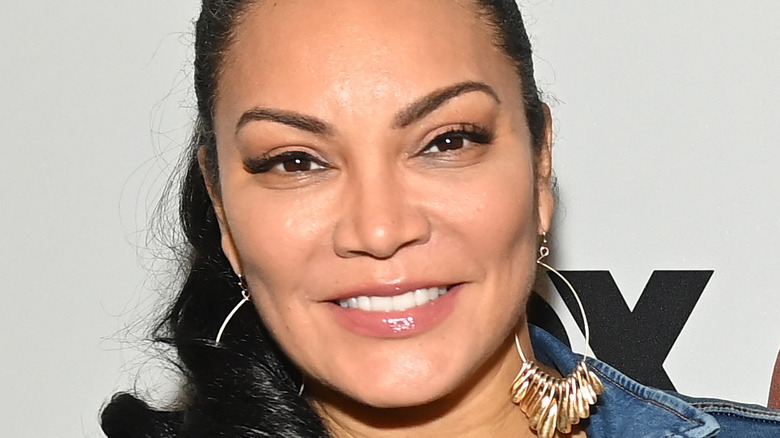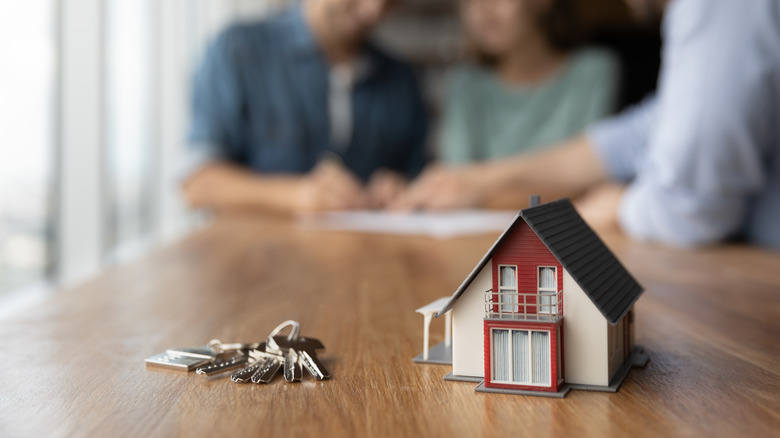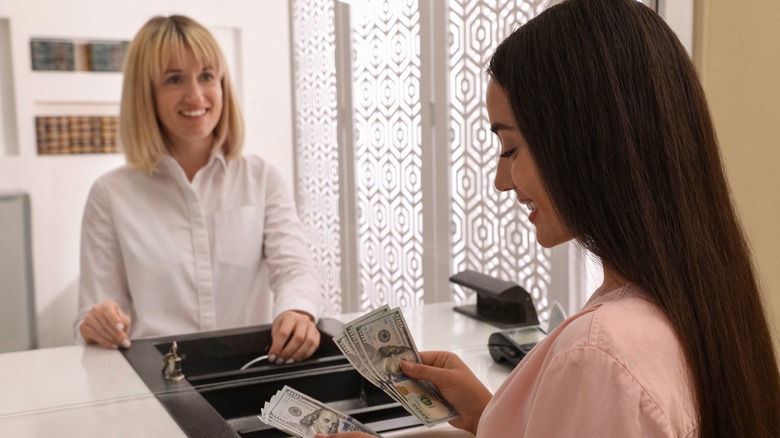Flipping Virgins Star Egypt Sherrod On What You Shouldn't Do When Buying A Home
If this is your first time buying a home, you probably have a lot of questions as to what you should and shouldn't do, and that's okay! Purchasing your first home is a big deal, and there are a lot of factors to consider to ensure everything runs smoothly. According to Bankrate, 34% of people who purchased homes in 2021 were first-time buyers, so you can take solace in the fact many others are doing this for the first time too. Thankfully, Egypt Sherrod from HGTV's "Flipping Virgins" knows a thing or two about the dos and don'ts of buying a home.
Throughout the entire home-buying process (from house hunting to putting in an offer to closing), you need to be cautious of potential mistakes you could be making along the way. While some may seem insignificant, they can severely affect your chances of getting the house you want. To prevent making these mistakes, Egypt Sherrod shares what you shouldn't do when buying a home.
Buy before you're ready
There's no rush to buy a home — especially if you aren't 100% committed to the idea. The average cost to purchase a home is about $44,000, The Balance states. This includes your closing costs, down payment, as well as your first monthly payment (these numbers vary from city to city, but the costs included are the same). Sherrod says you need to figure out if you plan on living in that home for at least seven years. If not, she says you're better off waiting, or you could end up losing a large amount of money.
She says you're better off renting until you're sure buying a home is the right choice for you. It might feel like you're flushing money down the drain by renting, but renting a space gives you more flexibility because you can move more often. Even though you aren't building equity, you're saving yourself from making a permanent investment you may not be financially (or mentally) ready for.
Make a big purchase before you apply for a mortgage
Sherrod suggests holding off on any major purchases until you have the keys to your new home in your hand according to Egypt Sherrod. When you apply for a loan, lenders check out your "debt-to-income" ratio, which is the amount of your gross monthly income you put towards paying off your debt. You want to keep your ratio low, so you have a greater chance of getting your loans approved, Chase explains. If you're racking up more debt, lenders are going to take notice (and not in a good way).
So, what's a good ratio? You want to aim at or below 43%, which is as high as lenders will consider you eligible for a Qualified Mortgage — a loan you're most likely to pay off, Consumer Finance states. As much as you might want to finance a brand-new car or a new bedroom set, we can assure you that waiting is going to pay off in the long run.
Move your money between banks
Lastly, Sherrod warns against transferring any money between different accounts, as noted in Egypt Sherrod. Your bank statement will light up like a Christmas tree, and lenders will notice you've made large withdrawals or deposits. In that same vein, keep your money in the same bank. The last thing you want to do is open an account with another bank, as doing so will make lenders think you're unreliable and lack stability says Veterans United. Changing banks can also cause a delay in the home-buying process.
Lenders take an in-depth look at your bank statements, so if you've been moving your money around between accounts or banks, it's going to set you back until they've collected the most accurate numbers. Just like making big purchases, it's best to hold off on moving your money or opening new bank accounts until the keys to your home are in your hand.



